I hope you had a good time learning Vedic maths in the 1st part of this series.Today we will speak of mathematics and Hemachandra numbers ( the series of recurrences) 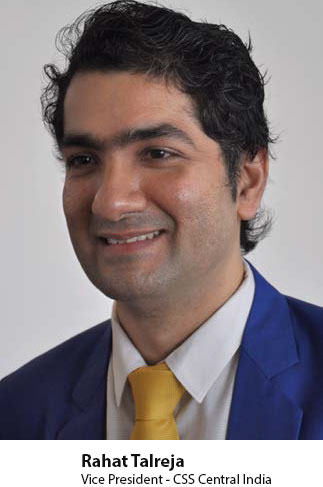
Mathematics is, in large part, the search & study of patterns and for the explanations as to why those patterns exist. We will see the use of these patterns in day to day life.
Example: Patterns in motion of planets led to theory of gravitation or patterns in genomes help in curing disease.
Lets start the math with the universe of Whole Numbers:
What are whole numbers :
……-4,-3,-2,-1,0,1,2,3,4,…..
Lets see some number sequences below:
1,1,1,1,1,1,1,1,1,…. All 1’s
1,2,3,4,5,6,7,8,9,….Counting numbers
1,3,5,7,9,11,13…. Odd numbers
2,4,6,8,10,12,14…Even numbers
1,4,9,16,25,36,….squares
1,8,27,64,125,…..cubes
1,2,4,8,16,32,64,128,….Powers of 2
1,4,16,64,256,1024,4096….Powers of 4
Lets see now how sequences are related:
Example 1: Odd numbers and Square numbers are related
How ?
When you add up the odd number sequence you get the square number sequence
1=1
1+3 =4
1+3+5=9
1+3+5+7=16
Formula : 1+3+5+…..(2n-1) = n square
Example 2: Counting numbers and square numbers are related
How?
When you add up the counting numbers sequence to a point N and back to 1 , you get the square numbers sequence.
1=1
1+2+1 =4
1+2+3+2+1 = 9
1+2+3+4+3+2+1 = 16
Formula : 1+2+3 + ….+ n +…..+ 3+2+1 = n square
Now lets see the Hemachandra number series : (Hemachandra (1150 AD) number series also written by Gopala ( 1135 AD ) also known as Fibonacci( 1200 AD))
Write down 1 and 2
The next number is the sum of the previous two numbers
1,2,3,5,8,13,21,34,55,……..
Formula: Hn= H (n-1) + H ( n-2)
So which is the 7th number in the series , look up and count , its 21. and so on.
Where is it applied ?
Hemachandra numbers in Sanskrit Poetry :
Poetry has 2 syllables – Long ( 2 beats) And Short ( 1 beat)
The number of ways you can fill up 8 beats:
Long Long Long Long = 2+ 2+2+2 = 8
(Short Short ) X 4 = 8
Short Long long Short Long = 1+2+2+1+2 = 8
So answer to the question that in how many ways can you fill up 8 beats , see the 8th number in the Hemachandra sequence : answer is 34.
Hemachandra numbers in Nature:
a) Daisies ( flower) have 13 , 21, 34 petals – all Hemachandra numbers
b) Pine Cones have 8,13,21,24 etc spirals – again all in the Hemachandra numbers series
Now , lets evaluate some others mathematical concepts.
Prime Numbers
2,3,5,7,11,13,17,…….
Prime numbers have only two factors , 1 and itself
You cannot have two numbers multiplied to get that number – that is a prime number.
So lets see for example the number 13 = 1X13 = 13 = two factors only , 1 and 13.
But these prime numbers were discovered way before humans by nature.
You know Cicadas ? These are insects ( bugs)
Cicadas live underground and emerge only once every N years , where N tends to be a prime number like 13 or 17
Why ?
The hypothesis is that then N is least likely to be a multiple of the length of the predators population cycle which could kill them off.
Indian Cicadas come out every 7 years and some every 19 years
In America , they come out every 13 years and 17 years.
It was observed that those coming out in years other than prime numbers were predated and lost their lives so this pattern has become common that they come out only in prime number years , based on their predators life cycle!!
Prime numbers in everyday life
Suppose you have two 200 digit prime numbers
Give them a computer , and it can multiply them in a fraction of a second and give the answer which will be a 400 digit answer.
Now take this 400 digit answer and give it another computer , and ask to find the original two 200 digit prime numbers.
The best known algorithms , working on all the worlds computers , would still take billions of years to find those two 200 digit prime numbers !!!!
Which means A multiply by B = C – here finding C is very easy A XB but to reverse find the factors A and B which result in C is impossible !
So basis this , it is easy to multiply two large prime numbers but hard to do the reverse process , is the basis of the world’s encryption !!!!
Often when we submit private information on the internet , prime numbers are what are being used to encrypt the information and protect it since no one knows how to find factor numbers ( or so we think ) this method of encryption is presumably secure !
The thesis is that it is difficult to go backwards and find the factor or find a quick way to find the factor. So the problem of factoring is the basis of encryption technology.
(Opposite of multiplication is factoring – 10X10 = 100
100 is multiplication and factoring is to know 10 and 10 are the factors)
142857 :
Example of 142857 – a 6 digit number – so we will multiply it till 6 and see:
142857 X 1 = 142857
142857 X 2 = 285714
142857 X 3 = 428571
142857 X 4 = 571428
142857 X 5 = 714285
142857X 6 = 857142
Look closely , the same numbers get interchanged in the answers , observe carefully!!!!!!!
Are there such n digit numbers so the if you can multiply by 1 through n , the number just cycles around ?
Yes example is 0588235294117647 ( 16 digits)
Try multiplying this 16 digit number with 1 and till 16 and the answers will be the same numbers just circling around.
Are there infinitely many such numbers ? No one knows ….
Reasons for this pattern is Self similarity and Fractals:
Examples of self similarity and fractals in Nature are as follows:
Fern leaves – each leaf is just the same as another of its leaf.
Similar fractals are snowflakes , leaves , clouds , coastlines , mountains , lightening ……
Another example of Fractal architecture is The Kandariya Mahadev Temple in Madhya Pradesh
Self similarity in man made art :
Fulani wedding blanket from Nigeria
M.C. Escher the Dutch artist who made mathematically influenced graphic art – zoom a picture and you keep seeing the same picture in the picture.
In todays times , Princeton University even has a Fractal broccoli !
Thanks for taking the time to read this ancient power of Indian sciences and now you can go back to WhatsApp university to learn and argue on what NDA did or UPA did which is our current obsession !
Pride is a result of complex. So if you are already feeling proud that it was an Indian who discovered these patterns and not the Italian Mathematician Fibonacci , it has nothing to do with Hemachandra or Fibonacci , it is to do with your own complex. And yes , I purposely didn’t mention that Hemachandra was a Jain monk born in Gujarat so as not to let any artificial pride get in the way of understanding the subject for what it is. Happy Easter!
PS: This article is directly influenced from the lectures and work of the current generation mathematician at Princeton University , Professor Mr Manjul Bhargava!


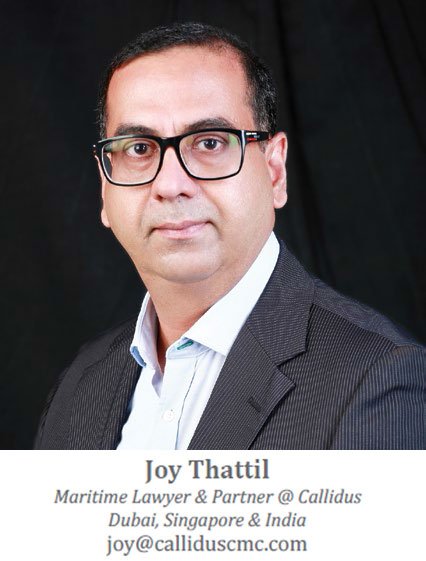 Rennell Island, one of the country’s outlying islands in its southern Rennell and Bellona Province, is geographically remote with little infrastructure and few services. The Solomon Islands is part of the marine biodiversity-rich Coral Triangle and has one of the world’s most important coral reef systems, home to 485 coral species and 1,019 fish species.
Rennell Island, one of the country’s outlying islands in its southern Rennell and Bellona Province, is geographically remote with little infrastructure and few services. The Solomon Islands is part of the marine biodiversity-rich Coral Triangle and has one of the world’s most important coral reef systems, home to 485 coral species and 1,019 fish species. Recently we heard about someone, we’ll call
Recently we heard about someone, we’ll call  Famous quotes stand the test of time because they are proved to be true. In this context ‘Life begins where fear ends’ is an esteemed maxim by Gautama Buddha, later interpreted by many spiritual and philosophical leaders. In today’s corporate world, where progress is determined by targeted objectives, quotes like this have gained greater relevance because the burdens on one’s emotional and mental well-being are increased.
Famous quotes stand the test of time because they are proved to be true. In this context ‘Life begins where fear ends’ is an esteemed maxim by Gautama Buddha, later interpreted by many spiritual and philosophical leaders. In today’s corporate world, where progress is determined by targeted objectives, quotes like this have gained greater relevance because the burdens on one’s emotional and mental well-being are increased.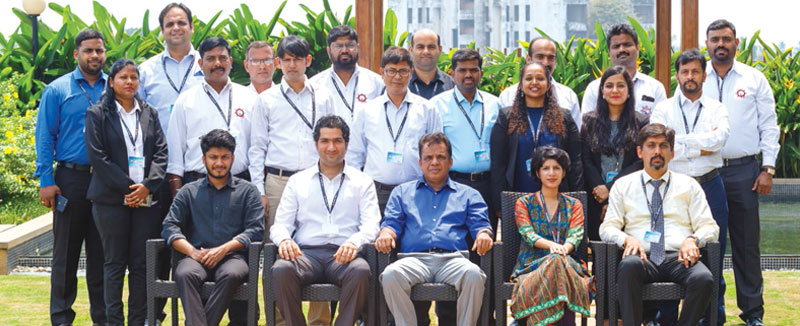
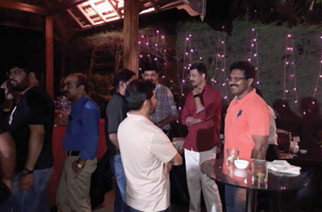
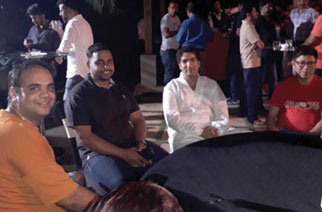
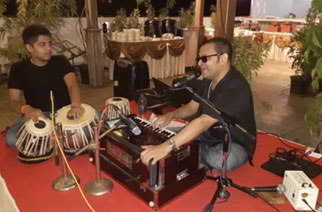
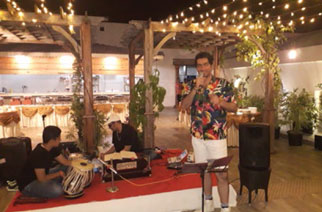
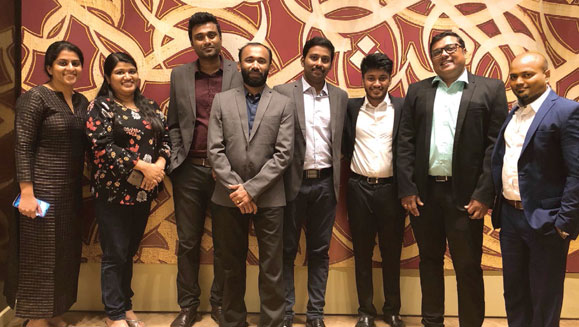
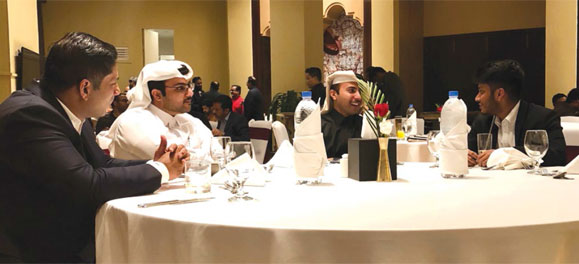
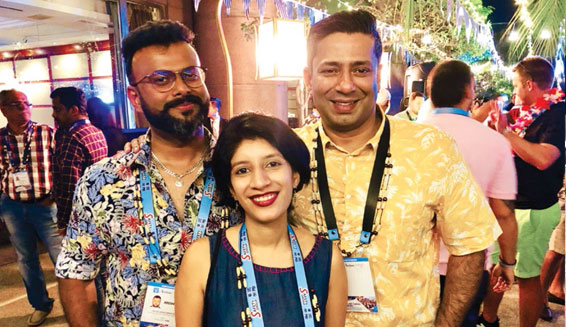
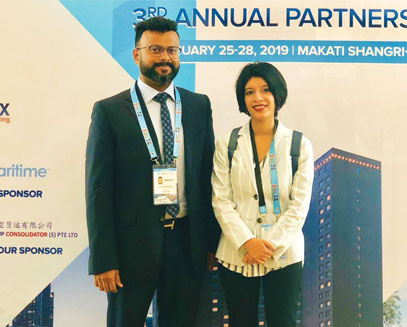
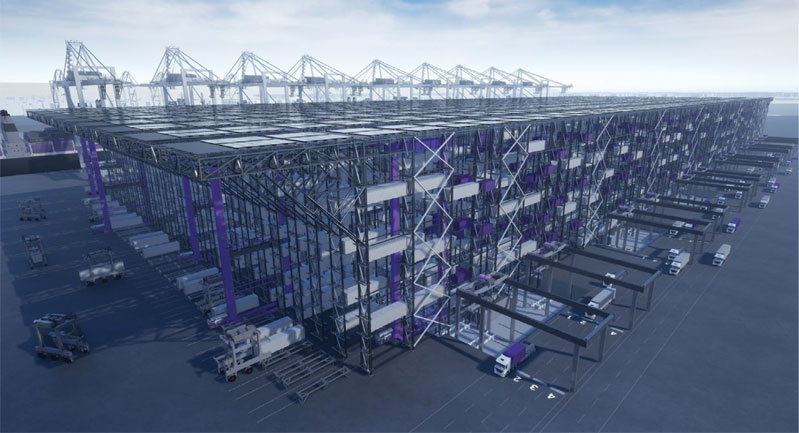

 The networking dinner was attended by Ajay Krishnan Chief Operating Officer, Freight forwarding CSS Group and Rosh Manoli, General Manager, Sales & Marketing CSS Dubai. The networking event was a gathering of supply chain management professionals from across various industries. It included manufacturers and MNC’s who have a presence in this region. The event was very good as it was a platform for knowledge sharing and information on key trends in the supply chain industry. More than 110 industry professionals from around 70 organizations attended the function.
The networking dinner was attended by Ajay Krishnan Chief Operating Officer, Freight forwarding CSS Group and Rosh Manoli, General Manager, Sales & Marketing CSS Dubai. The networking event was a gathering of supply chain management professionals from across various industries. It included manufacturers and MNC’s who have a presence in this region. The event was very good as it was a platform for knowledge sharing and information on key trends in the supply chain industry. More than 110 industry professionals from around 70 organizations attended the function.

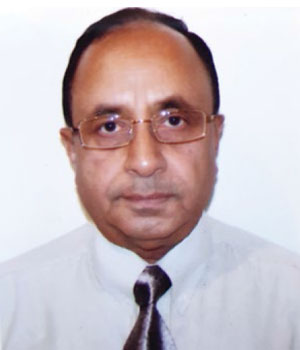 CSS Group was deeply saddened with the demise of Mr. Lalit Sharma, CEO of Lalit Freight Services. Mr Sharma has always been a great supporter of CSS Group and a long-time business associate. Chairman of CSS Group T S Kaladharan extended his condolences in Mr. Sharma’s untimely departure. “Mr. Sharma’s inspiring leadership and pursuit of excellence have created an enviable reputation for his company in the freight forwarding business. With his demise, we lost a great friend who stood with us in our ups and downs” mentioned Kala in his message.
CSS Group was deeply saddened with the demise of Mr. Lalit Sharma, CEO of Lalit Freight Services. Mr Sharma has always been a great supporter of CSS Group and a long-time business associate. Chairman of CSS Group T S Kaladharan extended his condolences in Mr. Sharma’s untimely departure. “Mr. Sharma’s inspiring leadership and pursuit of excellence have created an enviable reputation for his company in the freight forwarding business. With his demise, we lost a great friend who stood with us in our ups and downs” mentioned Kala in his message.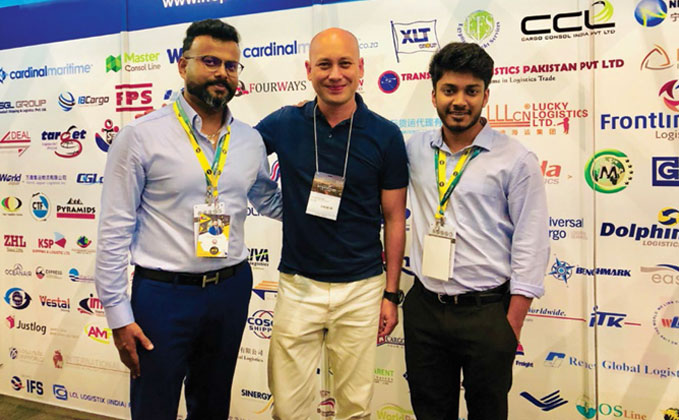



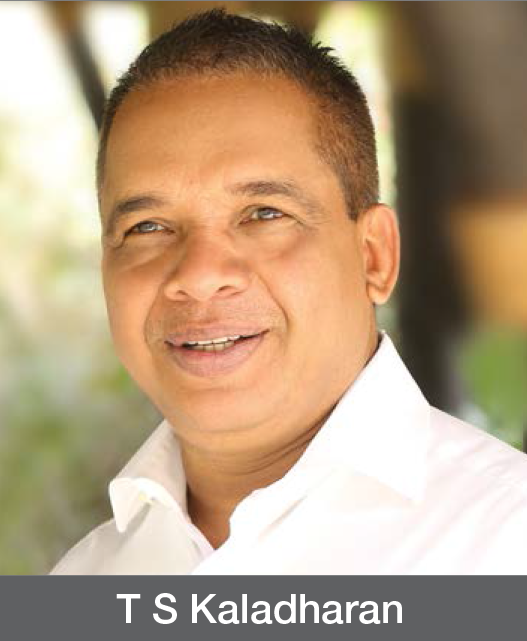 Companies are made-up of management and staff that are invariably a unique combination of brains and personalities. Being able to bring all their talents together, in order to achieve success, is a paramount challenge.
Companies are made-up of management and staff that are invariably a unique combination of brains and personalities. Being able to bring all their talents together, in order to achieve success, is a paramount challenge.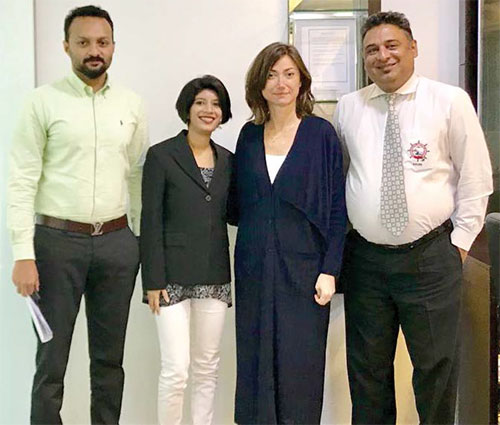 CSS Group recently received Ms. Lilia Garcia, Foreign Sales Manager of IFS Spain at the Regional Headquarters of CSS Group in Dubai. Her visit was as part of a strategic sales campaign initiative to CSS Offices in the Middle East. Along with the subjects of mutual interests and business development, the current market scenario -too- was brought in to the discussion table by both companies. It was mutually agreed to work more closely to enhance business in 2019 through the trade lanes which are already open.
CSS Group recently received Ms. Lilia Garcia, Foreign Sales Manager of IFS Spain at the Regional Headquarters of CSS Group in Dubai. Her visit was as part of a strategic sales campaign initiative to CSS Offices in the Middle East. Along with the subjects of mutual interests and business development, the current market scenario -too- was brought in to the discussion table by both companies. It was mutually agreed to work more closely to enhance business in 2019 through the trade lanes which are already open.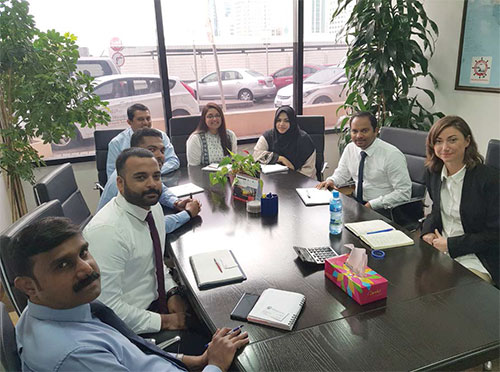 “In IFS, we believe that the close and continued contact with our partners is the way to improve our common service to the freight forwarders and to understand their needs” mentioned Lilia to Lighthouse.
“In IFS, we believe that the close and continued contact with our partners is the way to improve our common service to the freight forwarders and to understand their needs” mentioned Lilia to Lighthouse.
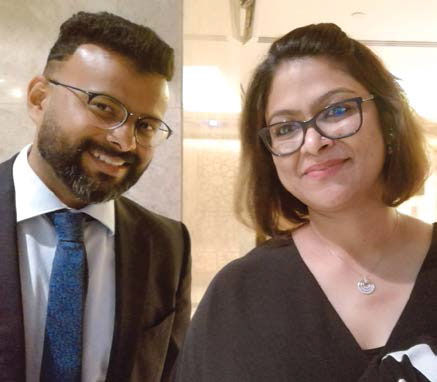 Breakbulk Middle East provided opportunities to interact on several platforms, for the participants. The event was well attended by CSS delegates and participated at the networking dinners. One such was organized by Höegh. Head of Country (UAE), Finn Roden from Höegh invited for a presentation of their Breakbulk cargo handling initiatives, followed by a Customer Appreciation Dinner at the -“Bliss 6” Restaurant-The Conrad Hotel Dubai on the 11th of February.
Breakbulk Middle East provided opportunities to interact on several platforms, for the participants. The event was well attended by CSS delegates and participated at the networking dinners. One such was organized by Höegh. Head of Country (UAE), Finn Roden from Höegh invited for a presentation of their Breakbulk cargo handling initiatives, followed by a Customer Appreciation Dinner at the -“Bliss 6” Restaurant-The Conrad Hotel Dubai on the 11th of February.
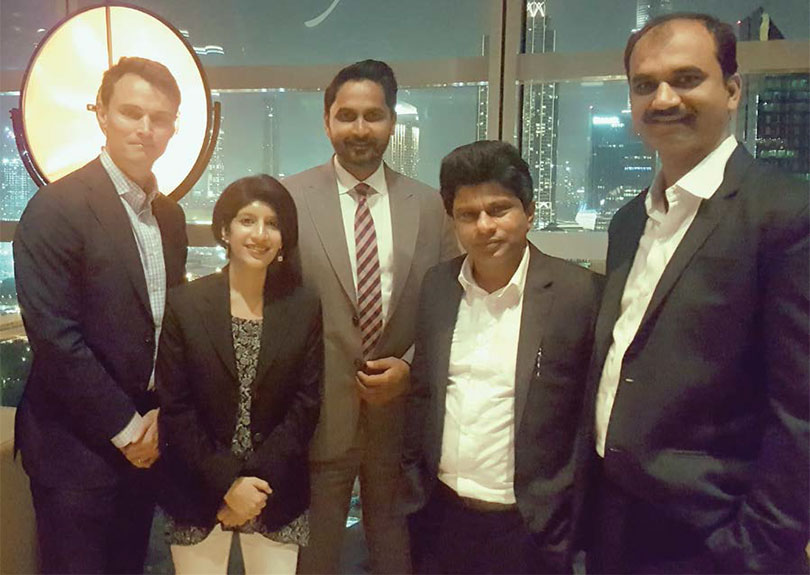
 Now take 1000 as the base
Now take 1000 as the base